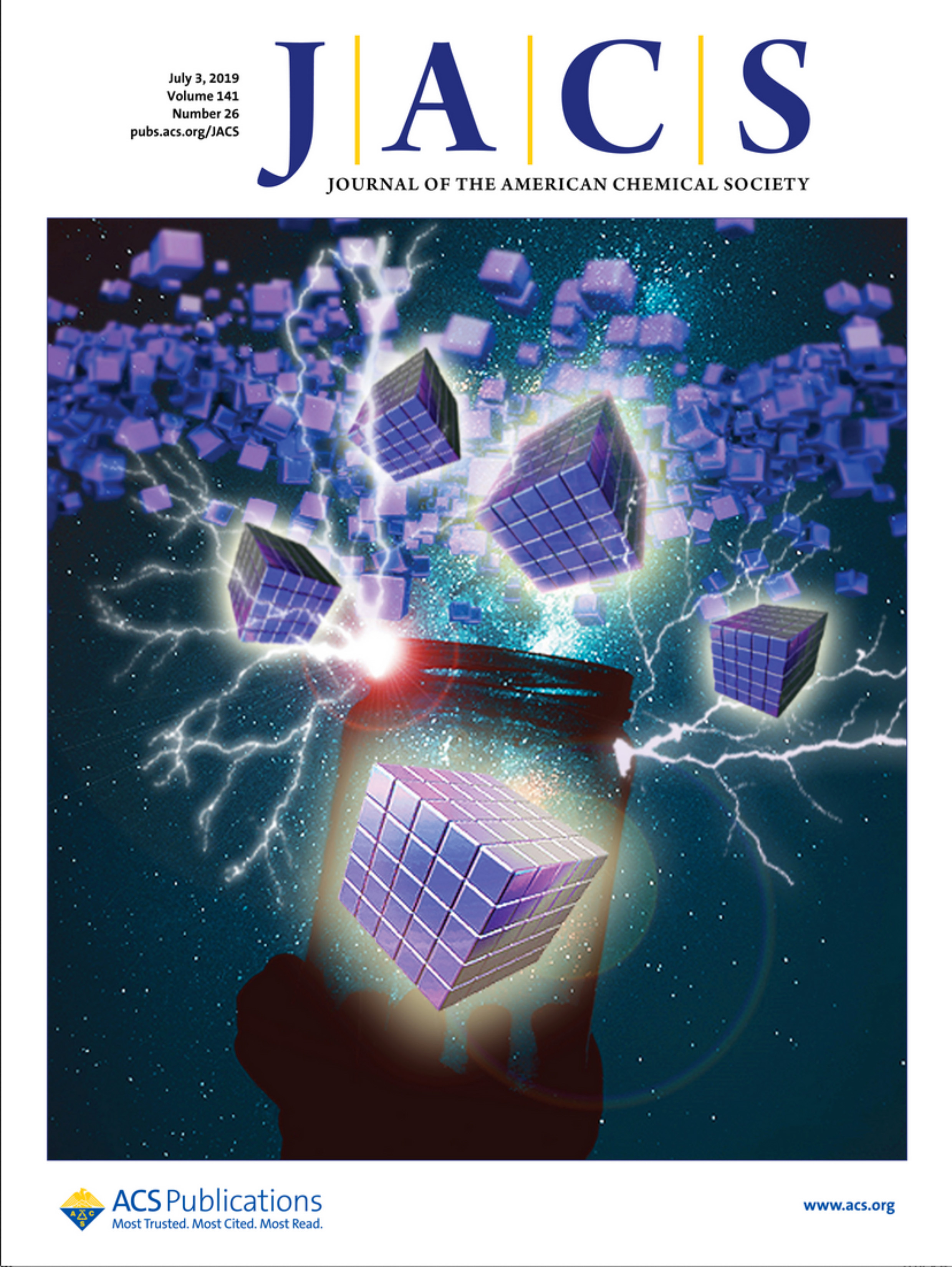
New Horizons of Nonclassical Crystallization
Marie Jehannin, Ashit Rao, Helmut Cölfen J. Am. Chem. Soc. 2019, 141, 10120−10136 DOI: 10.1021/jacs.9b01883
ABSTRACT: Nonclassical crystallization (NCC) summarizes a number of crystallization pathways, which differ from the classical layer-by-layer growth of crystals involving atomic/molecular building units. Common to NCC is that the building units are larger and include nanoparticles, clusters, or liquid droplets, providing multiple handles for their control at each elementary step. Therefore, many different pathways toward the final single crystals are possible and can be influenced by appropriate experimental parameters or additives at each step of crystal growth. NCC allows for a plethora of
crystallization strategies toward complex crystalline (hybrid) materials. In this perspective, we summarize the current state of the art with a focus on the new horizons of NCC with respect to mechanistic understanding, high-performance materials, and new applications.
This gives a glimpse on what will be possible in the future using these crystallization approaches: Examples are new electrodes and storage materials, (photo)catalysts, building materials, porous or crystalline materials with complex shape, structural hierarchy, and anisotropic single crystals.
